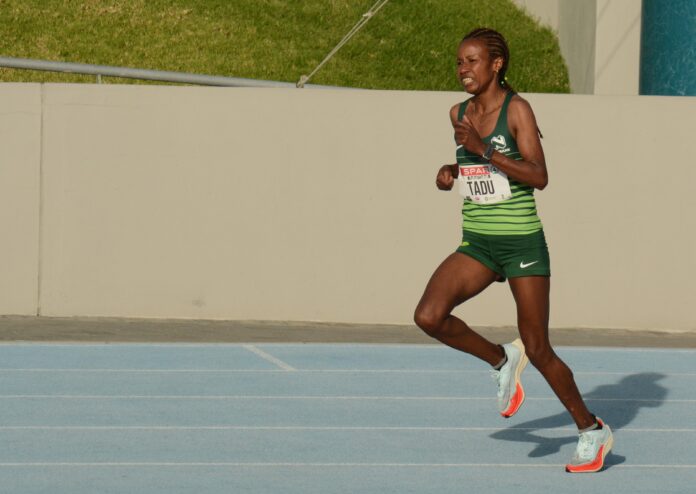One of the Ethiopia’s leading distance athletes in recent years, Tadu Teshome Nare, was just seven when the Noah of all storms unleashed its fury on her family home. There had been some heavy downpours in the Sidama region in central Ethiopia, but this one was different. Unrelenting.
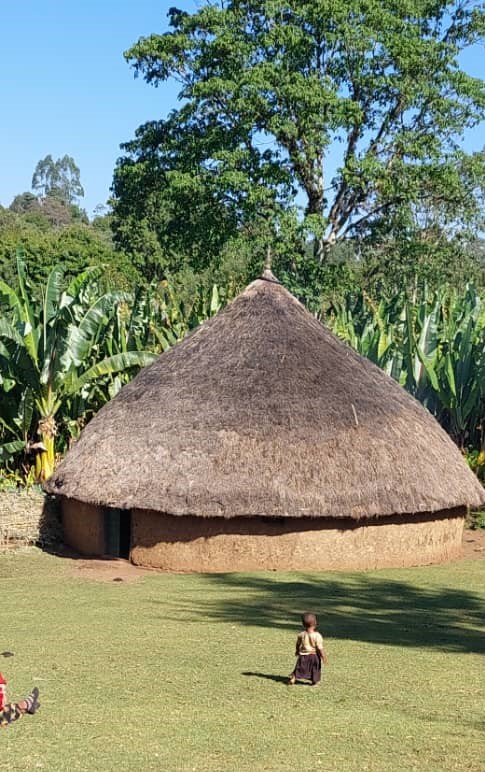
Heavy rain had lashed their wattle and daub farm hut for several hours. It was well-built, but it had not been designed to withstand the elemental forces which prevailed that night.
She had gone to sleep with her siblings after sunset, but shortly after midnight she awoke to shouts of alarm from her family. Drips had turned to streams as their reed- thatch roof started to disintegrate.
Suddenly she felt herself being swept away by a swirling torrent which now surged through their hut. Helpless and traumatised, she was barely conscious as the rushing waters tossed and tumbled her into the adjacent forest.

Miraculously her passage was interrupted by a low-hanging branch which snared her clothing. Somehow, she managed to cling on, crawling away from the angry waters.
But although Tadu was rescued from the forest, she was not out of the woods. Her leg had been badly injured during her midnight trauma. Doctors advised amputation of her leg to save her life. But her mother refused, leaning on traditional medicines to heal her young daughter.
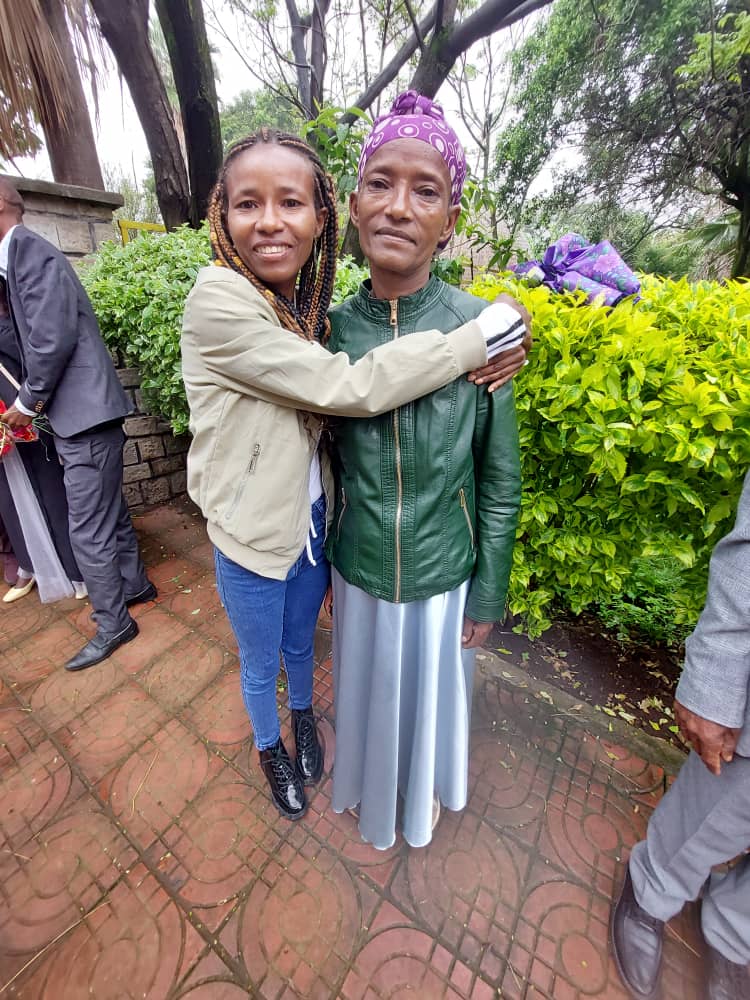
When Teshome crossed the finish line in the Valencia Marathon in Spain last December in a career-best 2 hrs 17 min 36 sec, she might have reflected on her mother’s brave decision 14 years earlier. She had come of age in the ultra-competitive world of marathon running, rather than having had to learn a new life in a wheel-chair, which could easily have been her fate.
Teshome’s performance lifted her to 12th place on the world’s all-time marathon ranking. That time would have won every other high-profile marathon in the world last year bar Chicago, Berlin, Amsterdam and Hamburg, where she would have placed second. Valencia delivered the deepest quality ever seen in women’s marathoning and Teshome missed the podium by just 7 seconds.
The depth in women’s distance running in Ethiopia is extraordinary. Teshome’s best is just 2 min 38 sec slower than Amane Beriso Shankule’s 2:14:58 national record she set in winning Valencia but four other compatriots ran faster, all in 2022. But Teshome is the fastest athlete to emerge from the less-developed and populated Sidama region, where she is fast becoming a role model for young athletes.
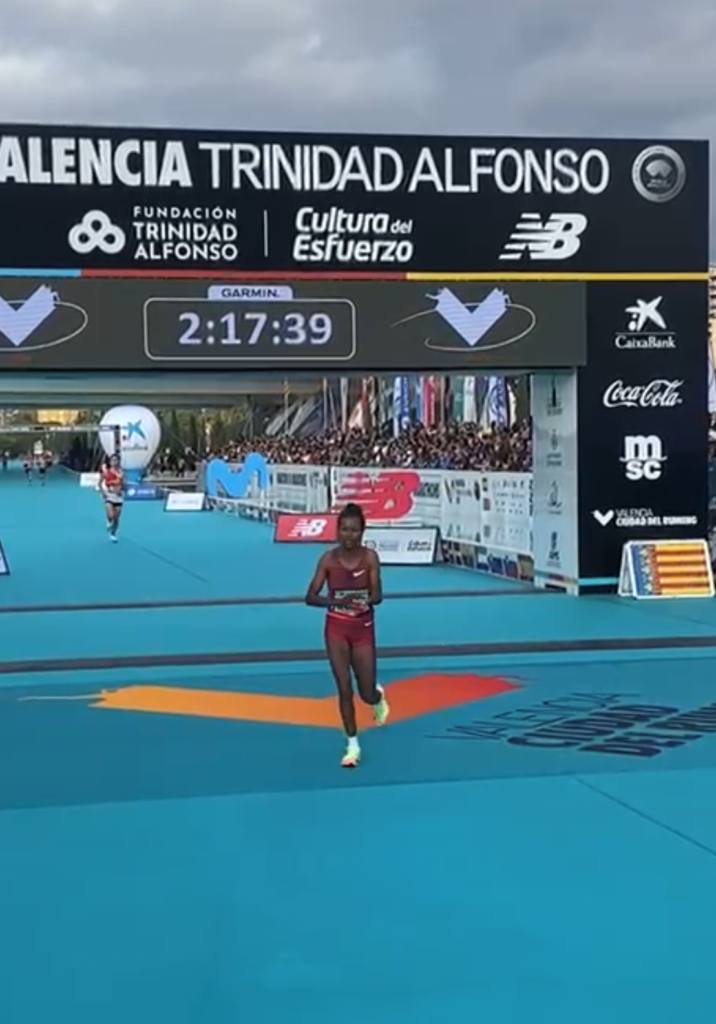
But at just 21 years of age there is little doubt that this determined, young Ethiopian will feature prominently on the biggest athletics stages in the months and years to come.
“The top ranked athletes running the Valencia Marathon were talking about going out at 2:12 pace,” Teshome said. “My coach and I decided to run our own race as I was running my first fast marathon (she previously ran 2:26:38 in Riyadh and 2:23:53 in Barcelona). My goal was simply to run under 2:20.
“My plan is to run one of the London, Boston or Tokyo Marathons next year to qualify for world championships (which take place in August in Budapest). The organisers are saying their races are full but I keep trying and I’m praying hard.”
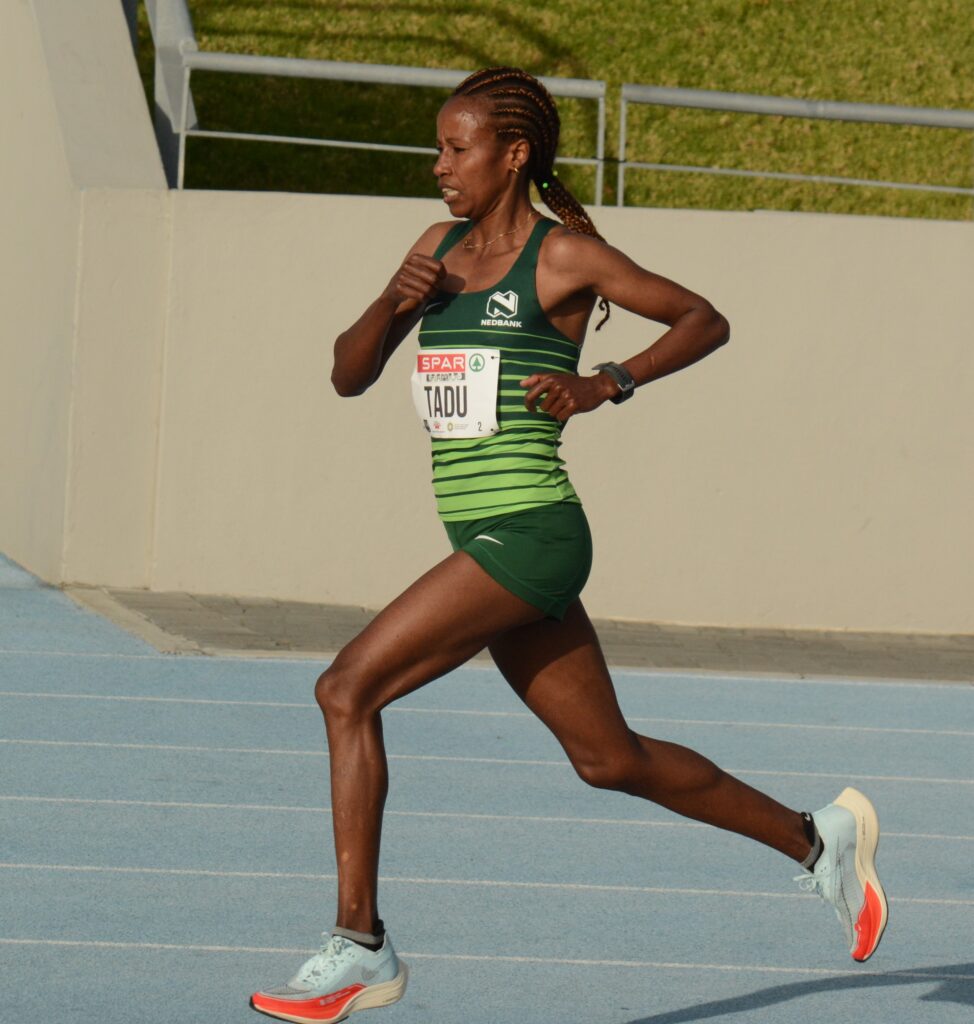
While Teshome has achieved significant success at a relatively young age, she has several years of competitive distance running in her legs. She excelled at school, where she attracted the attention of Belay Hagos Alemayehu, manager and coach of the Nedbank Running Club in Addis Abebe.
Three years ago the club sponsored an 18 year old Tadu Teshome Nare to race in South Africa and she has shown year on year improvement, leading to a superb 1:07:55 half marathon best time at the Athletics South Africa Half Marathon in Gqeberha last year. She ended her South African sojourn with a decisive win over 2018 Commonwealth Games marathon winner, Namibian Helalia Johannes, in the final SPAR Grand Prix 10km in Cape Town last October to retain the overall Grand Prix title.
Prior to Valencia, the strongest indicator that Tadu Teshome was set for greatness was her victory at the 2022 Copenhagen Half Marathon in September, just a month before her SPAR 10km success. On that occasion, Teshome came out on top in a tight contest with two of her compatriots, racing to a world-class 1:06:13 victory.
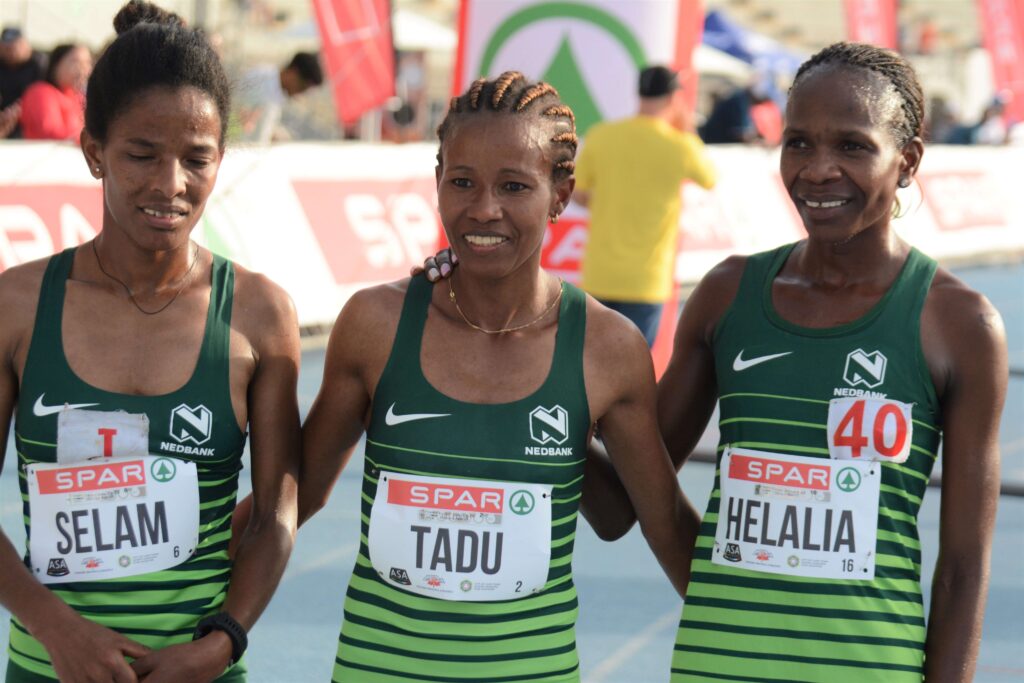
Where does her exceptional talent come from? “Neither my mother nor father were good at sport – or perhaps they didn’t have the opportunity,” explains Tadu. “And none of my siblings either. Running was just something I could do, I guess.”
Coach Belay acknowledges her natural talent but emphasises that natural ability is only part of what makes Tadu Teshome a great athlete. “Her natural gifts get her 70% of the way but she also has the character which provides the other 30%. She is disciplined, a hard worker and very smart.”
Teshome’s strong principles and beliefs, based on her traditional upbringing, have led her to taking a strong stand against the use of performance-enhancing drugs or any form of cheating in sport. “I’ve heard of many who have been taking drugs who are now suffering from cancer, mental disorders or losing their fertility,” she says. “My first priority is good health and fairness in sport.
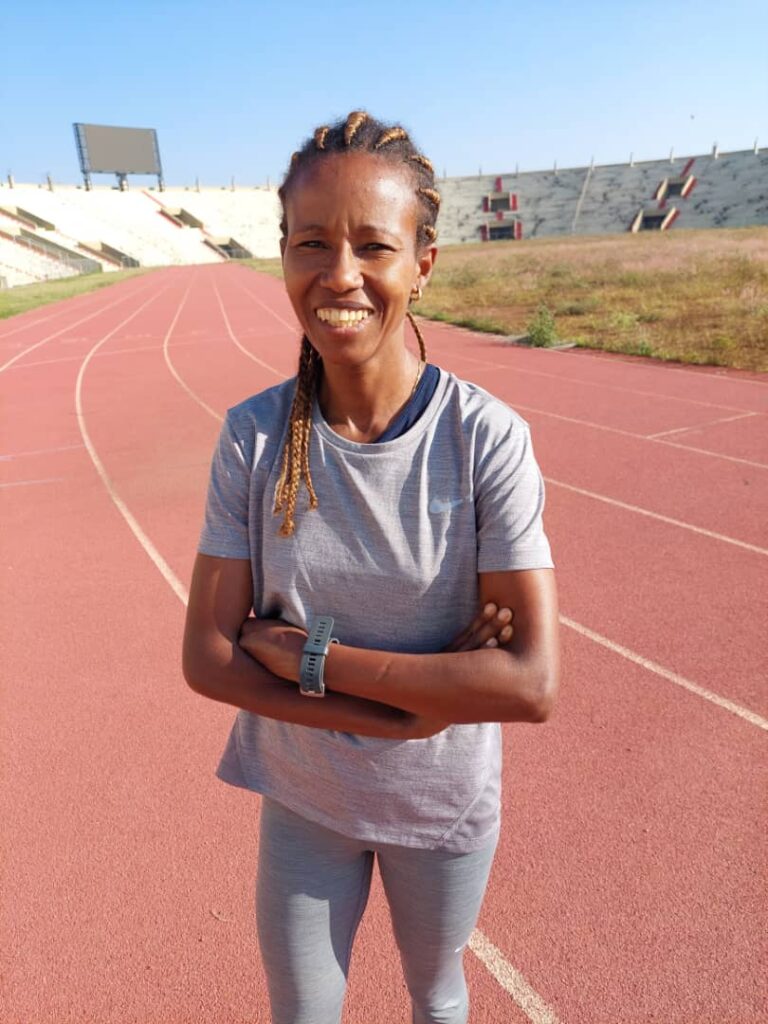
“I’m looking to run at my best for many years to come and would rather make slow, steady progress and maintain a healthy lifestyle than try for quick wins outside the rules of the sport,” she said.
“I believe that training hard, eating smart based on a natural food diet and being disciplined in training is the best way forward and that this will make it possible to beat the dopers.”
“I am confident of making the team for the Paris Olympics, either for the 10 000m or the marathon, but the fight is now on to qualify for the Ethiopian team for the marathon at the world championships.
“Boston is my first choice – it’s the world’s oldest annual marathon with so much history behind it. I’d love to race there and challenge for the race record (currently held by Kenyan Maragaret Okayo in 2:20:43). I’m hoping and praying I may be invited.”
A miracle saved Tadu Teshome Nare fourteen years ago. Might another be in the pipeline to earn her a position on the Boston Marathon start line in the New England town of Hopkinton?
